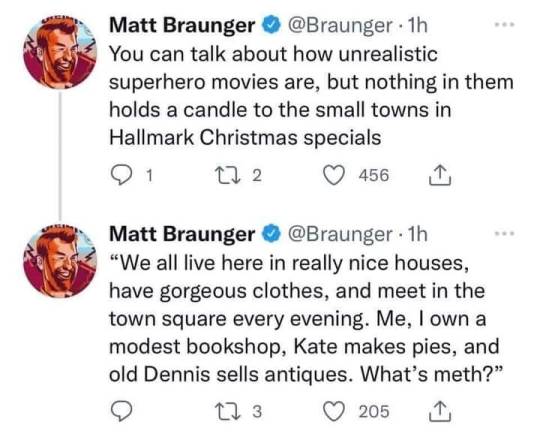Author of BROTHER & SISTER ENTER THE FOREST out in March 2023 by Catapult
Don't wanna be here? Send us removal request.
Text




Illustrations by Ed Emberley for SUPPOSE YOU MET A WITCH (1973).
654 notes
·
View notes
Text
1 note
·
View note
Text

3 notes
·
View notes
Text
Boris Says The Words by Kyle Winkler Is About Finding Hope and Freedom in the Dark

The world of Boris Says the Words, the new novel by Kyle Winkler, is breaking down. But this is by no means a sad occasion. While it’s true that the book depicts a dystopia at times gloomy, banal, and grotesque in its own way, Winkler manages to hit a perfect note of existential despair and at the same time, introduce an unambiguous sense of hope and humanity to the work. As Winkler traces the lives of a group of desperate and ailing people who all have interactions with a strange healing language and its shadowy folk-healer practitioner, it becomes a work about people searching for a way out of the toxic situations they’ve found themselves in, a journey to grow beyond their awful circumstances and finally set themselves free in whatever ways they can. It requires its bleakness and melancholia to make it that much clearer that it’s bright and uplifting. It’s weird, wonderful, dark, hopeful, and deeply empathetic all at once, and absolutely demands your attention.
Pavel works in a call center for victims of a nuclear plant disaster until a gigantic bird of prey drops a rabbit through the roof of a nearby house. Polina and her cursed, radiation-sick son Garry live a quiet existence running a psychic scam until the day a rabbit corpse crashes through their roof and brings Pavel into their lives. Han and Katya live a quiet life in the American Midwest until the day Han is diagnosed with a degenerative illness and finds out about Katya’s former life in Russia and her connection to a strange gelatinous hallucinogen called zuby boga. All of them have a connection to Boris, a hulking and secretive healer who can teach people special words that can cure any ailment, but at the cost of sending the harm into someone or something else. As all these people are slowly, inevitably drawn to each other on a journey through the decaying Russian countryside, they will encounter cults, vast electronic graveyards, and a number of unusual events, all influenced by the looming figure of Boris and his mysterious words. As characters are drawn together on a fateful train ride, the question remains if they will survive, and what, if anything, will be left.
Boris Says the Words is a book about disintegration and decay. It begins in the aftermath of a nuclear plant meltdown, an event whose effects are felt almost constantly throughout the book as the radiation moves further into the countryside. Even beyond that, Han has a nasty and aggressive form of Multiple Sclerosis that courses through his body, causing him more pain and loss of function as the book continues. His relationship with Katya breaks down as he learns more about her and the healing words, with the two of them growing more and more distant as they become unable to live with each other’s choices. Pavel constantly monitors everything with a handheld dosimeter, worried about exactly how much lethal radiation is swirling around him. Even Boris is affected to some degree, with his body breaking down further and his belief in his own power causing him derangement as the book goes on, at one point referring to Rasputin as “a backwater pimp.” Winkler writes toxicity and the disintegration of both relationships and their surrounding landscape with a naturalistic feel. These things are part of the everyday world of the characters, whether it’s the background radiation or simply the toxic relationships they find themselves in. Even the worse things they find themselves doing, like Han and Polina’s addiction to zuby boga, a drug that allows them to essentially astral-project into objects and other people, seem simply like a natural choice of the world they find themselves in. They self-medicate to escape the crushing sense of entropy around them, around their relationships, even around the grotesque circumstances in which they find themselves.
It suffuses the book with an air of melancholy, but specifically not despair. Instead, there’s a sense of fatalism present throughout. Misfortune, decay, and death are presented as something gentle, casual, and inevitable; Less the onrush of trauma and more the slow inevitable slide into the dark. There’s no saving the world. It’s too large, too broken. Even those who can speak the words tend to view that more as a hasty stopgap maneuver than something that could reverse the disintegration around them. After all, things have to end sooner or later. The major conflict in Boris Says the Words isn’t so much between good and evil, or decay and renewal, but with choosing whether or not to live and more importantly how to live in a world that’s more or less breaking down. In Winkler’s version of Russia, the horror seems as natural as anything else. Even the few scenes of violence are met with shock, then a slowly-fading sense of danger and fear as the characters adapt to the new situation. They’re conditioned through repeated exposure to accept the horror, to try and keep themselves despite the awful things going on around them. To free themselves from that looming, melancholic specter, and the shadowy, malignant presence of Boris, as sure as the radiation or external forces at work on the cast.
All of this sounds depressing, but Winkler deftly avoids the obvious route of making Boris Says the Words pessimistic. At every turn, at every moment in the plot, the characters might not be trying to change the world or rail against the dystopia where they live, but they are choosing to live. They elevate themselves by choosing to survive, by hanging on to every choice, every personal moment, every scrap of themselves. The book’s central theme is healing from trauma, being able to free yourself from the awful circumstances around you and around your life, and finding ways to live. It would be wrong to say that anyone in Boris Says the Words has their circumstances greatly improved by the end– the world is still broken and in many ways so are the people in it– but most importantly, despite that sadness, the book ends on a note of hope. It would be wrong to say anyone is healed or saved in Boris. Healing is a work in progress (even with the false quick fix the words represent), and salvation is a fairy tale that even a miracle worker like Boris would fail to provide. But those that reach the final chapter of the book are changed for the better, and they are free. Free to make what choices they can. Free from their magical thinking and self-medication. Free in some cases from being a cosmic plaything and being battered around by forces that might or might not exist. It’s not easy, and in some cases the cost is much higher than anyone would want, but that freedom, that continued existence despite the horrors of the world, is worth it.
Which is what, above all else, makes the book worth it. Existential and cosmic horror are evergreen topics in weird fiction, but rarely do we have books that thread the needle so adeptly. Winkler’s astonishing mix of new wave-style science fiction, domestic tragedy, Soviet magical-realist horror show, and definitive note of hope are, while drawing on the past and things the reader might have seen before, something new to consider. At the very least, if you’re looking for something with the right amount of existential despair that doesn’t make you feel completely gutted, you owe it to yourself to take a visit to the village of Bulm. Winkler’s cockeyed vision of rural Russia and the shadowy madman at the center of it all are well worth the trip, if not multiple trips.
2 notes
·
View notes
Photo
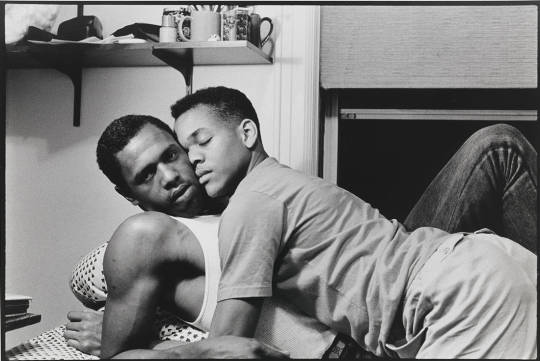
Lyle Ashton Harris. “untitled (Lyle and Robert, Bronx, New York, circa mid 1980s)”
16K notes
·
View notes
Text

4 notes
·
View notes
Text

Finished copies of my novel arrived last night 😭🥰
21 notes
·
View notes
Photo
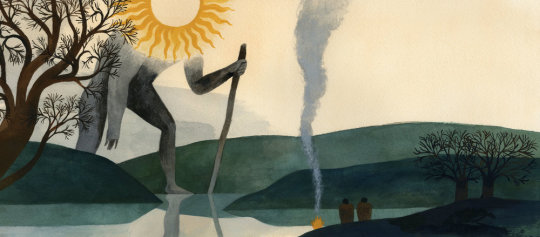


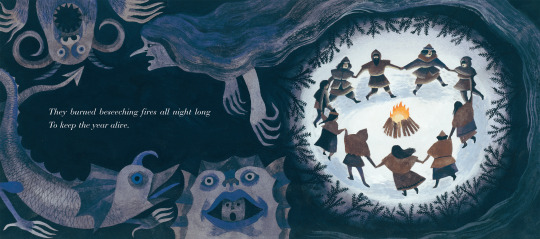
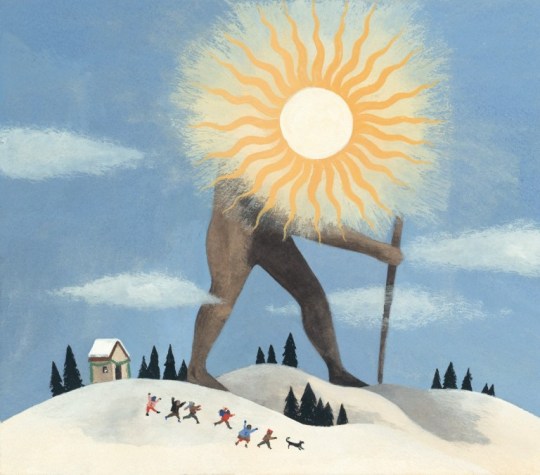
The Shortest Day. Words by Susan Cooper, illustrations by Carson Ellis.
37K notes
·
View notes
Text
❄️💨🌬️

3 notes
·
View notes
Text

Rob Kirby's graphic memoir: MARRY ME A LITTLE out in February!
7 notes
·
View notes
Text
My favorites of 2022.


13 notes
·
View notes
Text

5 notes
·
View notes
Text
weirdos who are harping on about ~covid tyranny~, still, in november 2022, are absolutely on a different planet. look around! you won! no one wears a mask and you dont have to either! you dont have to get vaccinated! no one is even trying to make you anymore! the most vulnerable have been fully forced out of public life so that you can breathe on everyone at cub foods! you got every single thing you want and you’re still crying about “covid nazis” … you are delusional. you are tripping. the dynamic you have created in your mind, in which you are a rebellious scion of individual liberty in a world gone mad with excess caution, does not reflect the conditions of reality. it is embarrassing fantasy. there’s nothing more embarrassing than a jerkoff on the winning team who can’t accept a world where they’re not a righteous underdog. as much as you insist that you don’t want to “live in fear,” it is your own obvious terror of changing your behavior that has defined the trajectory of the past three years. please shut the fuck up forever.
36K notes
·
View notes



